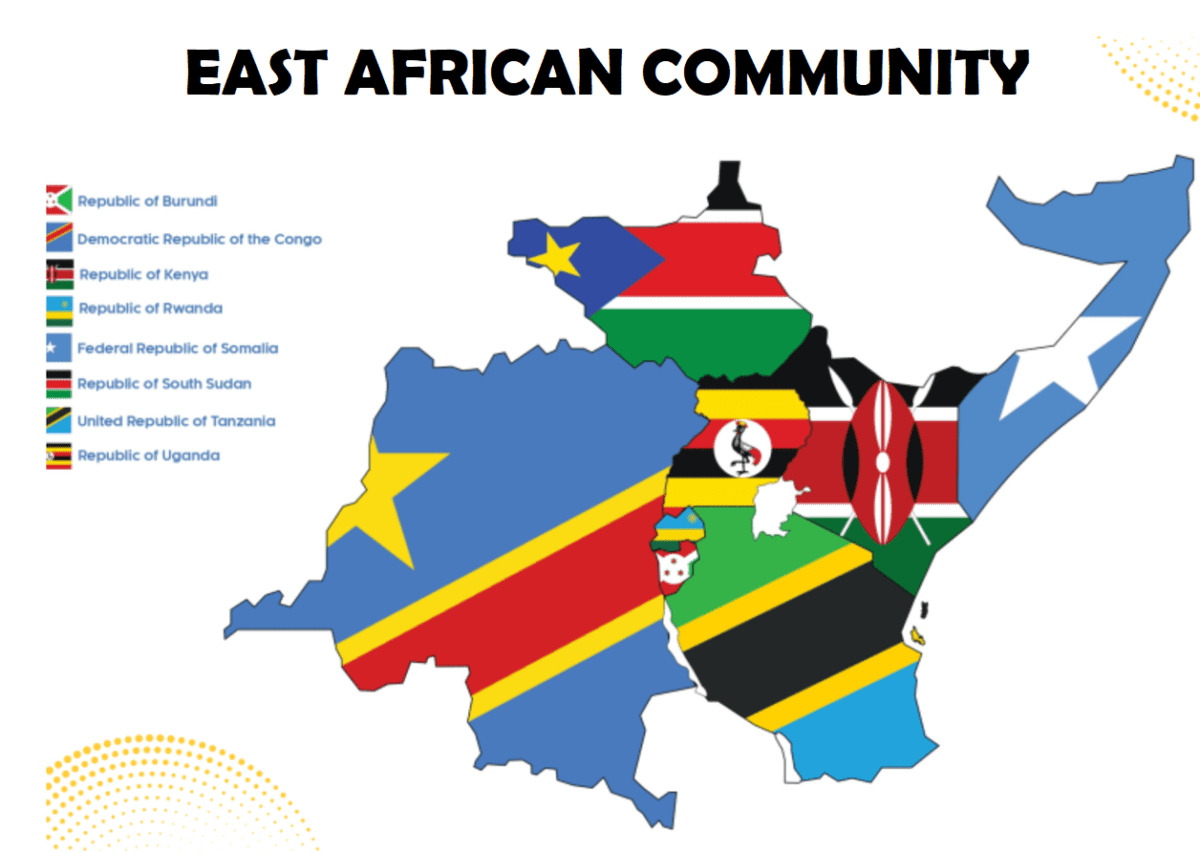Agribusiness in The EAC Trade Bloc: Why New Strategies Are a Must in an Uncertain World

The current geopolitical climate is fraught with challenges, and the East African Community (EAC) is not immune to these global upheavals. The impacts of the Russian-Ukraine war have reverberated worldwide, affecting global trade and commodity prices. Simultaneously, conflicts in the Middle East and tensions between major powers such as the U.S. and China further complicate international relations. These geopolitical tensions, alongside numerous elections in 2024 around the globe, significantly influence trade relations and economic stability, which in turn affect the EAC.
The East African Community, comprising Burundi, Kenya, Rwanda, South Sudan, Tanzania, Uganda, Somalia, and the new member state, the Democratic Republic of Congo (DRC), is a regional intergovernmental organization that seeks to enhance economic, political, social, and cultural integration. However, the EAC, like other regional trade blocs, faces the challenge of navigating a complex international trade environment marked by high tariffs, non-tariff barriers, and political instability.
Given the global economic landscape, the EAC must re-evaluate its trade strategies. The region’s trade relations with central economies, particularly China, are influenced by these global political and geopolitical events. The need for new strategies is evident as traditional trade agreements may no longer suffice in an unpredictable world.
Comparison of GDP of Group of Economies and China – Source: IMF

Expanding Trade Agreements and Partnerships
While the EAC has made significant strides in regional integration, there is a pressing need to expand its trade agreements beyond the African continent. Engaging with countries like China, India, and members of the Association of South-East Asian Nations (ASEAN) could open new markets for East African products. These regions represent significant growth opportunities, with rising populations and increasing demand for agricultural products.
China remains a critical market for many East African countries. Despite its slowing economic growth, China’s market potential is still substantial. Strengthening trade relations with China could help EAC countries diversify their export markets and reduce dependency on traditional partners such as the European Union and the United States, which face their own economic challenges.
Moreover, deepening trade relations with India, which is experiencing robust economic growth, could also prove beneficial. India’s expanding middle class and increasing food demand present a lucrative opportunity for EAC agricultural exports. Additionally, engaging with ASEAN countries, which are witnessing significant economic and population growth, can further diversify the EAC’s trade portfolio.
New Strategic Approaches
In this new global context, the EAC needs to adopt innovative strategies to ensure sustainable growth and stability. This includes exploring new crops, implementing future contracts to lock in prices, and enhancing agricultural insurance schemes. Increasing irrigation and adopting advanced agricultural technologies can also mitigate the risks posed by climate change and geopolitical uncertainties.
Improving logistics and supply chain management is crucial. The EAC must address the high freight costs exacerbated by geopolitical tensions and the pandemic. Developing resilient supply chains and fostering strong relationships with global suppliers can help mitigate disruptions.
Furthermore, the EAC should focus on reducing non-tariff barriers within the region to promote intra-regional trade. Streamlining customs procedures, harmonizing standards, and improving infrastructure can enhance trade efficiency and competitiveness.
Embracing Technological Advancements
The adoption of technology in agriculture is paramount. The use of biological products, precision farming, and other advanced agricultural techniques can boost productivity and sustainability. Investing in research and development will drive innovation and help the EAC countries to stay competitive in the global market.
The EAC must navigate an increasingly uncertain world with strategic foresight and adaptability. By expanding trade agreements, embracing technological advancements, and improving logistics, the EAC can enhance its agribusiness sector’s resilience and competitiveness. Governments and the private sector must collaborate to implement these new strategies, ensuring that the region can thrive amid global challenges. In this evolving landscape, proactive and innovative approaches are essential for sustaining growth and ensuring food security in East Africa.



